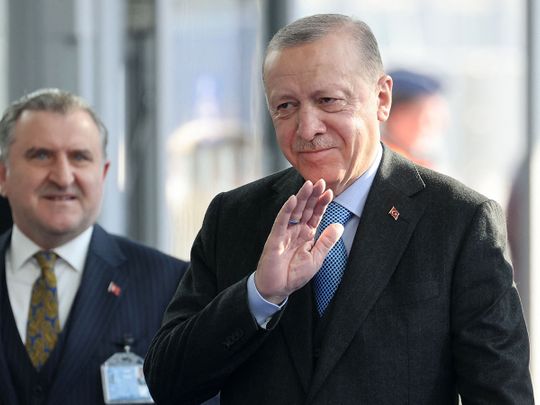
The very basis of the European Union is built on the ruins of the Second World War, a cataclysmic event that caused the deaths of 50 million people and brought unprecedented economic and social upheaval across the continent.
Western Europe was in tatters, bombed into ruins from both the Civil War in Spain and the far wider war driven by Adolf Hitler and his national socialists. And as the continent tried to recover, it faced the threat then of nuclear annihilation and massed Soviet tanks behind an Iron Curtain that stretched from the Baltic to the Black Sea.
From the Steal and Coal agreements grew a recognition that economic cooperation brought prosperity. And when people prospered in a free market, peace was the ultimate dividend. Indeed, to the East, on the other side of that Iron Curtain, Communist controls on the free market essentially meant economic deprivation — unless, of course, you had access to the black market and hard currency.
From the initial six members of the European Economic Community, the project gradually grew to 10, then to the current 27, buoyed by the rush of former Soviet republics eager to join the economic bloc once they met the democratic, social, political and economic rules set down by the club centred on Brussels.
And for the past 35 years, Turkey has wanted in.
Membership has its privileges
Rewind to 1987, when both Morocco and Turkey initially sought to join the club — as an American Express advertisement used to note, membership has its privileges.
The Moroccan application was easily rejected. It was a North African nation — even if it had long ties to France through colonisation. But Turkey? Well, it’s always been the gateway between east and west and geographically, Europe’s boundary lies down the Bosporus Straits. Rather than saying an outright ‘No’, the Eurocrats in Brussels do what bureaucrats in Brussels do best — they stalled. And stalled some more.
Fast forward 35 years, and Turkey is still waiting for its golden key. Yes, Brussels is still stalling.
It’s not as if Ankara and Brussels haven’t been talking or working together. Yes, very much so, they have. Back in 1999, Europe said Turkey was indeed eligible to join the EU.
But it’s still not in.
Turkey’s involvement with European integration dates actually back to 1959 and includes the Ankara Association Agreement of 1963. You’re probably not familiar with that, and neither was I, but it set the groundwork for a customs union between Turkey and the rest of western Europe that’s been in place since 1995.
Talks really began in earnest about full membership in 2005 but they haven’t gone anywhere. Unless, of course, Europe wants something from Ankara.
According to EU officials, Turkey is a key strategic partner of the EU on issues such as migration, security, counter-terrorism, and the economy, but has been backsliding key areas where the EU wants democratic values upheld — things like freedom of association, media freedoms and an independent judiciary. Sure, Poland and Hungary have been criticised for lapses in these areas over the past three years or so — but they have the benefit of being inside the club.
Turkey is not in the club
Six years ago, when Daesh was on the rampage and millions of Arabs were fleeing political and social unrest in Syria, Iraq and elsewhere, Turkey provided a natural barrier to keep those refugees out of EU territory. According to EU laws at the time, once a refugee made it to the EU, they could settle anywhere in the then 28 members. And yes, it was one of the drivers in Britons voting to leave the EU five years ago.
Before the current crisis in Ukraine, Turkey was home to to the most refugees in that area of the world, And for doing so, it gets billions in EU funding annually. In 2021, it received €6 billion, and the current agreement is in place until 2025.
With an estimated 3.6 million refugees being hosted by Turkey, Ankara has significant leverage on Europe now. With the United Nations estimated that close to 10 million have left their homes in Ukraine and many have settled in the EU states bordering Ukraine, the prospect of an even deeper refugee crisis is something Brussels simply can’t brook right now.
On Tuesday, Turkish President Recep Tayyip Erdogan asked the EU to relaunch talks for Ankara to eventually become an EU member — a call that was made on the eve of a summit focused on Russia’s intervention in Ukraine.
Yep, timing is everything.
For 60 years now, Turkey has been a member of the North Atlantic Treaty Organisation, joining it in the same week as did Greece.
But membership of the military alliance is one thing, gaining access to the economic club another.
“We expect the EU to open quickly the chapters of the membership negotiations and to start negotiations on a customs union without yielding to cynical calculations,” Erdogan said after talks with visiting Dutch Prime Minister Mark Rutte.
Since events began to escalate in Ukraine, Turkey has been an active mover and shaker in trying to find a diplomatic solution to the crisis.
In late February, Turkey invoked the 1936 Montreux Convention to close the Bosporus straight to foreign battleships. It has also sold armed drones to Ukraine and is attempting to mediate an end to the fighting between Kyiv and Moscow.
The crisis in Ukraine has certainly focused European thinking on what the future of the EU should be — and where it should be. Ukraine has asked to join in a fast-track application process. That has been rejected already by Brussels. But there’s a growing realisation that given Turkey’s unique position on the southeast boundary of Europe, the time is finally coming where Ankara’s application will be looked at in earnest. But EU officials are experts too when it comes to being non-committal.










